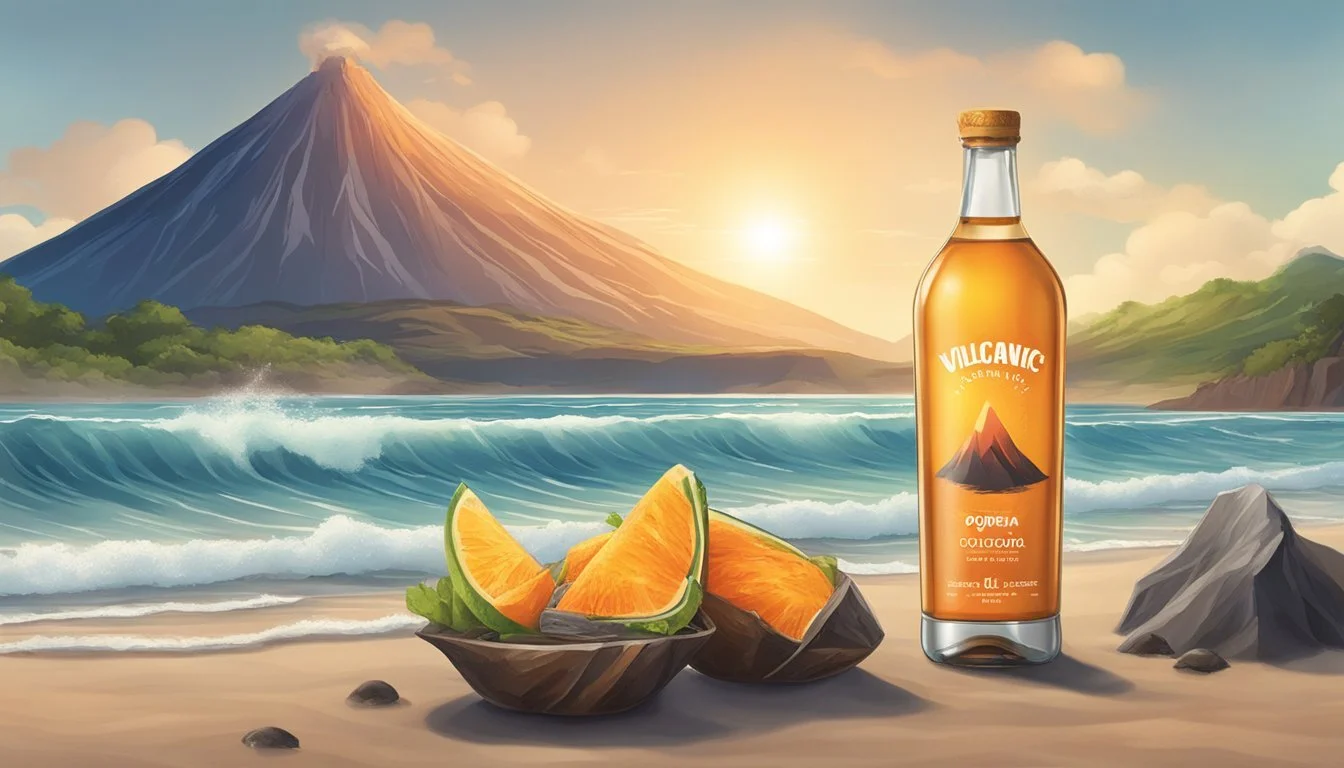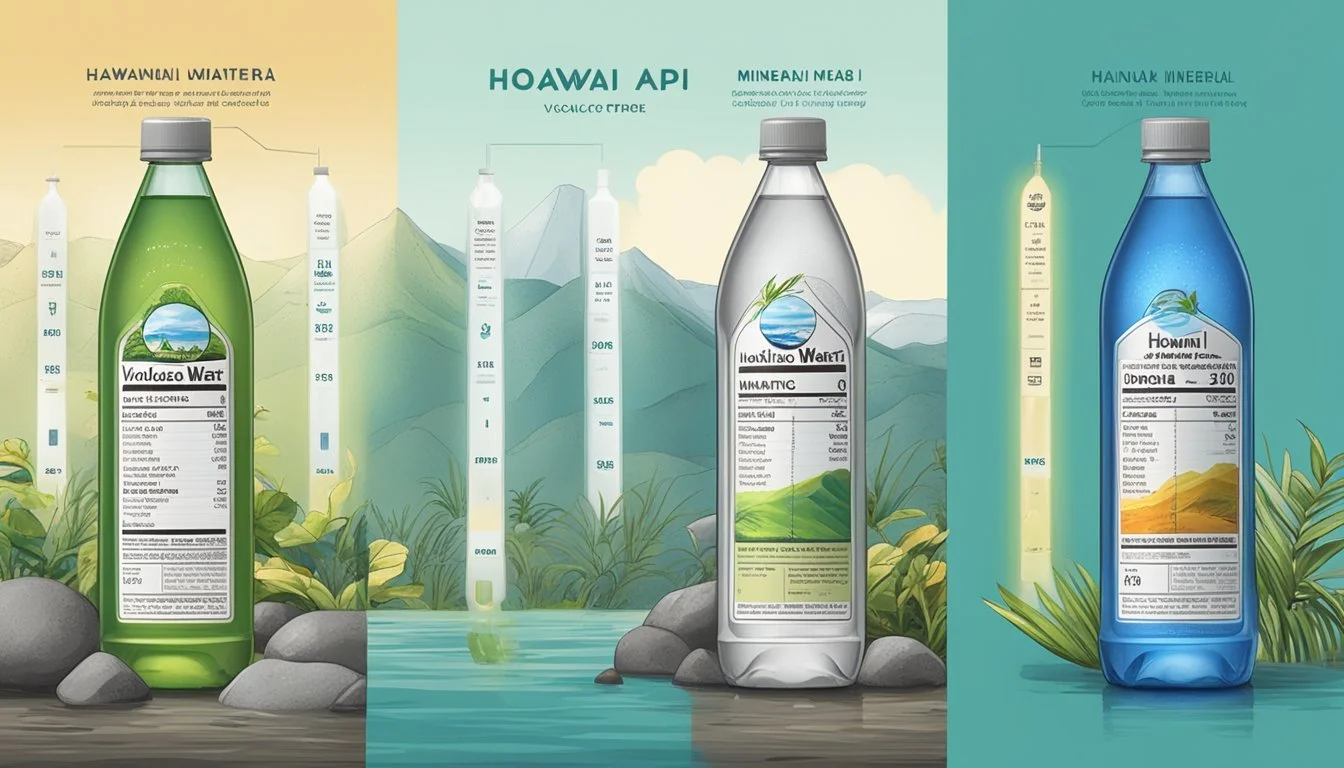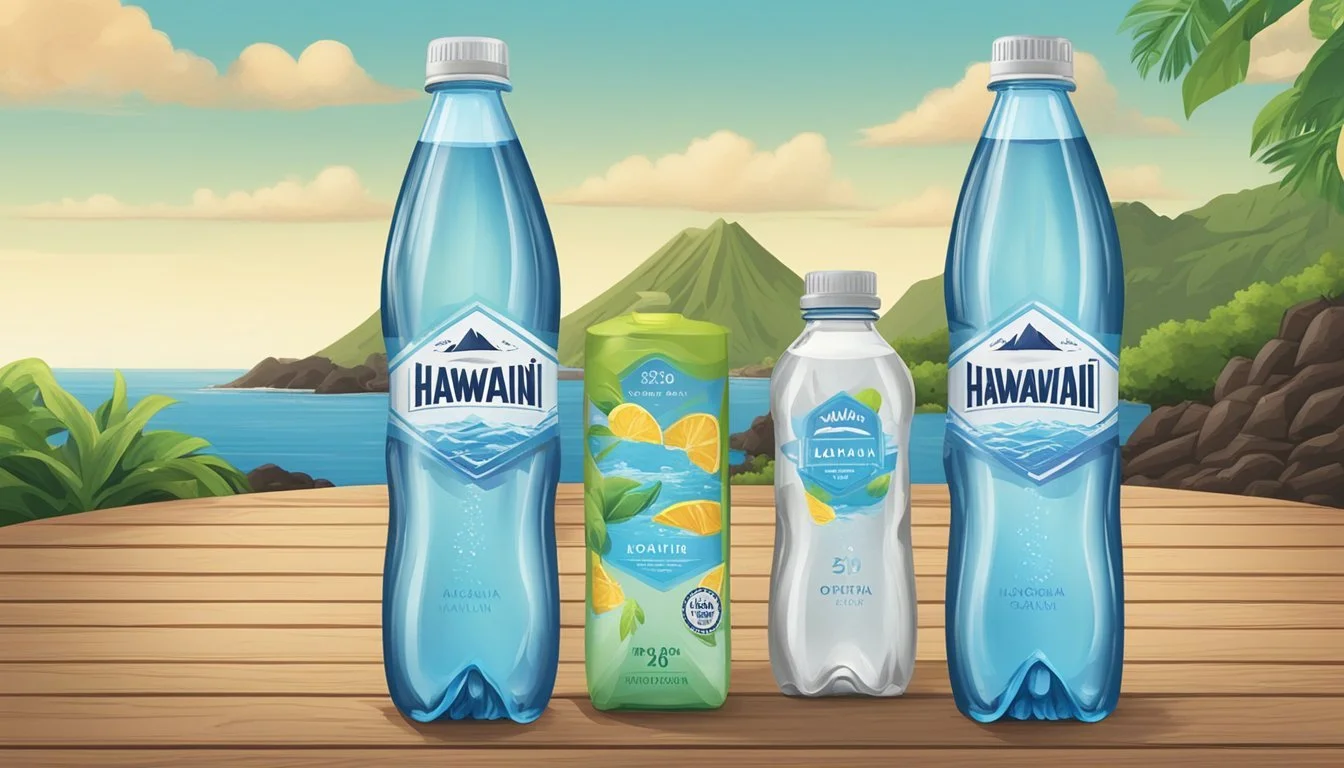Hawai’i Volcanic vs. Ophora
Which Bottled Water is Better?
When it comes to choosing between Hawai’i Volcanic and Ophora bottled water, health-conscious consumers often find themselves at a crossroads. Hawai’i Volcanic boasts naturally alkaline water sourced from Hawaiian volcanic springs, renowned for its rich mineral content and eco-friendly packaging. In contrast, Ophora offers oxygen-enriched water that claims to enhance hydration and support bodily functions more effectively than standard bottled water.
For those prioritizing mineral intake and sustainability, Hawai’i Volcanic stands out as the better choice. Its natural filtration process through volcanic rock enriches the water with vital minerals like silica, which promotes skin, hair, and nail health. On the other hand, Ophora focuses more on oxygenation, designed to maximize hydration efficiency and support athletic performance, making it appealing for active individuals or athletes.
Ultimately, the decision between Hawai’i Volcanic and Ophora depends on your specific needs—whether that’s mineral-rich hydration or enhanced oxygen content. This post delves deeper into the characteristics, health benefits, and market appeal of both brands, helping readers make an informed choice tailored to their lifestyle.
Origin and Source
Hawai’i Volcanic water originates from the slopes of Mauna Loa, one of the world’s largest volcanoes. The water is naturally filtered through porous volcanic rock, giving it unique mineral content and a balanced pH level. The journey from rainfall to bottling ensures purity and a refreshing taste characteristic of Hawaiian volcanic water.
Ophora, on the other hand, sources its water from an artesian aquifer. This aquifer taps into a deep underground water reservoir, providing natural spring water of high purity. The filtration through layers of earth and rock helps maintain the water's clean and crisp essence.
Both brands emphasize their natural filtering processes. Hawai’i Volcanic benefits from Mauna Loa’s porous lava, which filters out impurities. Ophora relies on the natural pressure within the artesian aquifer to keep contaminants at bay.
Hawai’i Volcanic:
Source: Mauna Loa Volcano
Filtration: Porous lava rock
Type: Volcanic water
Ophora:
Source: Artesian aquifer
Filtration: Natural underground pressure
Type: Natural spring water
Both waters uphold strict standards to maintain the natural quality and purity of their sources. Hawai’i Volcanic’s connection to the Mauna Loa volcano adds an exotic appeal, while Ophora’s artesian source ensures consistency and reliability.
Mineral Content and Health Implications
This section examines the essential electrolytes and minerals, pH balance and alkalinity, and the health benefits of silica content in Hawai’i Volcanic vs. Ophora bottled water.
Essential Electrolytes and Minerals
Electrolytes like calcium, potassium, and magnesium are vital for various bodily functions. Hawai’i Volcanic water contains natural electrolytes absorbed as it filters through volcanic rock. It includes magnesium, which supports muscle and nerve function, and potassium, which is crucial for heart health.
Ophora water also emphasizes its electrolyte profile, sourced from underwater aquifers rich in minerals. This ensures a balance of sodium—which aids fluid balance and nerve function—along with calcium for bone health. Both brands provide beneficial electrolyte levels, contributing to the Recommended Dietary Intake (RDI) for these essential minerals.
pH Balance and Alkalinity
The pH level of water can impact health, particularly in managing acid reflux and maintaining optimal body balance. Hawai’i Volcanic boasts an alkaline pH ranging from 7.6 to 8.5, attributed to its volcanic filtration process. This alkaline nature may help neutralize stomach acid and provide relief from acid reflux.
Ophora, with its slightly alkaline pH, also promotes an environment that can counteract acidity in the body. Adequate pH balance is significant for overall metabolic function and enzyme activity. Both waters strive to offer health benefits related to pH balance, making them preferable for those seeking alkaline water options.
Silica Content and Health Benefits
Silica in drinking water can support various health aspects, from skin to bone health. Hawai’i Volcanic water, filtered through lava rock, contains silica, which is vital for collagen synthesis, promoting skin elasticity and joint support. Regular consumption can aid in maintaining healthy hair, nails, and bones.
Ophora water claims to incorporate beneficial silica levels as well, sourced naturally from its aquifers. Silica's role extends to cardiovascular health by improving arterial elasticity, which enhances overall heart function. Both Hawai’i Volcanic and Ophora leverage silica's benefits in their offerings, contributing positively to a holistic health regimen.
Taste Profile and Drinking Experience
Hawai’i Volcanic offers a smooth and clean taste, often noted for its subtle mineral essence. This water captures the essence of Hawaii, sourced from pristine volcanic springs. Drinkers often appreciate its natural balance and refreshing qualities.
Ophora water delivers a unique drinking experience with its crisp and pure flavor. Enhanced with oxygen, it brings a distinct texture that some describe as invigorating. Its taste is clean, without any noticeable aftertaste, making it a favorite among those seeking a pure hydration experience.
Hawai’i Volcanic Attributes:
Source: Volcanic springs in Hawaii
Taste: Smooth with a faint mineral hint
Experience: Balanced, refreshing
Ophora Attributes:
Source: California springs
Taste: Crisp, pure
Experience: Oxygen-enhanced, invigorating
Alkaline Levels: Hawai’i Volcanic typically has a slightly higher alkaline pH, contributing to its smooth taste. Alkaline water enthusiasts might find it more soothing on the palate compared to standard bottled water.
Waiākea Water: Another Hawaiian brand, Waiākea, has a naturally high alkaline pH of 8.8. This contributes to a clean and smooth taste similar to Hawai’i Volcanic, making it popular among those who prefer alkaline water.
Consumers choosing between Hawai’i Volcanic and Ophora often base their decisions on these taste and experience factors. Each offers a distinct profile that caters to different preferences.
Purity and Filtration Process
The purity of bottled water is essential as it ensures the safety and health benefits of the water. Hawai’i Volcanic and Ophora utilize unique filtration processes, with a key emphasis on natural and additional filtration methods to eliminate contaminants.
Natural Filtration Through Porous Lava Rock
Hawai’i Volcanic benefits from natural filtration as water percolates through Hawaiian porous lava rock. This geological feature acts as a natural sieve, trapping impurities and removing sediments. It enhances water purity by filtering out potential contaminants such as microorganisms and heavy metals.
In addition, the volcanic rock imparts minerals like silica and magnesium, contributing to a crisp and refreshing taste that distinguishes Hawai’i Volcanic from other bottled waters. This natural process aligns with environmental sustainability by leveraging Earth's own filtration capabilities.
Additional Filtration and Purity Measures
Ophora stands out through its advanced multi-stage filtration system. This includes carbon filtering, reverse osmosis, and ozonation. Carbon filters remove chlorine, volatile organic compounds (VOCs), and other pollutants. Reverse osmosis further eliminates dissolved solids and microorganisms.
Ozonation disinfects the water, ensuring a high purity level without altering taste. Ophora also incorporates oxygenation, adding extra dissolved oxygen which may enhance metabolic functions. These stringent measures ensure that each bottle of Ophora delivers highly purified water with consistent quality, meeting or surpassing health standards.
Environmental Impact and Sustainability
Both Hawai’i Volcanic and Ophora take notable steps towards reducing their environmental impact through sustainable sourcing and innovative packaging solutions.
Source Sustainability and Eco-friendly Packaging
Hawai’i Volcanic emphasizes sustainability by sourcing its water from Hilo, drawing less than 0.003% of the water from the local volcanic slopes. This ensures a minimal impact on natural resources. The brand uses 100% highly recyclable rPET bottles, which consume 85% less energy during production and cut carbon emissions by 79%.
Ophora prioritizes an advanced filtration process that requires less water compared to conventional methods. Their bottles are BPA-free and made from post-consumer recycled materials, though not exclusively rPET. Both brands focus on reducing plastic waste by offering reusable bottle options.
Brand Initiatives and Contributions
Hawai’i Volcanic supports environmental conservation through various initiatives. The brand has active partnerships with organizations like Pump Aid, contributing to global clean water access. They also engage in local sustainability projects to preserve Hawaii’s natural beauty and resources.
Ophora, on the other hand, invests in promoting eco-friendly practices by encouraging consumers to use reusable bottles. The company participates in environmental education campaigns and collaborates with communities to spread awareness about water conservation. This grassroots approach aims to drive broader changes in consumer behavior towards sustainability.
Health and Lifestyle Considerations
When choosing between Hawai’i Volcanic and Ophora, it's essential to consider their impact on hydration and overall health. This section highlights how each caters to the needs of athletes and active individuals, as well as daily hydration routines.
Hydration for Athletes and Active Individuals
Athletes and active individuals require effective hydration solutions to maintain peak performance. Hawai’i Volcanic water is notable for its natural filtration through volcanic rock, which enriches it with vital electrolytes like potassium, magnesium, and calcium. These minerals are essential for maintaining electrolyte balance, reducing the risk of cramps, and supporting muscle function during intense activities.
Ophora water, known for its ultra-purification process, also provides balanced electrolytes but emphasizes oxygenation technology. This approach aims to enhance oxygen delivery within the bloodstream, potentially improving endurance and recovery times. Both options have an alkaline pH, with Hawai’i Volcanic naturally achieving an 8.8 pH, helping to neutralize lactic acid buildup.
Daily Hydration Routines for a Healthy Life
For regular hydration, both Hawai’i Volcanic and Ophora offer benefits that contribute to a healthy lifestyle. Hawai’i Volcanic water, with its naturally high alkaline pH and essential minerals, supports critical bodily functions including digestion, metabolism, and acid-base balance. Regular consumption can aid in maintaining optimal hydration levels and potentially improve gut health.
Ophora's focus on pure, ultra-filtered water ensures that contaminants are minimized, making it a trustworthy choice for daily consumption. Its oxygen-rich formulation is designed to boost cellular hydration and overall vitality, which can be particularly beneficial for individuals leading health-conscious lifestyles. Both brands emphasize sustainability, ensuring that their ecological footprint remains minimal.
Market Availability and Consumer Accessibility
Hawai’i Volcanic and Ophora offer distinct paths for consumers looking to incorporate premium bottled water into their lifestyles. Each brand provides unique retail options and convenient services aimed at enhancing consumer accessibility.
Bottled Water Brands and Retail Options
Hawai’i Volcanic water is renowned for its volcanic filtration process and naturally alkaline properties. It can be found in numerous retail stores throughout the United States. Popular chains like Sprouts Farmers Market stock their products, making it easy for consumers to purchase their favorite variants.
Ophora, although less ubiquitous, is available in select high-end grocery stores and specialty health shops. This brand focuses on niche market distribution, aiming to attract discerning customers who prioritize luxury and health benefits. Their specific retail partnerships reflect an emphasis on quality over widespread availability.
Convenience and Subscription Services
Both Hawai'i Volcanic and Ophora recognize the importance of convenience in modern consumer habits. Hawai’i Volcanic offers subscriptions through their website and platforms such as Amazon, allowing regular deliveries tailored to consumer preferences. This ensures consistent access without having to visit physical stores regularly.
Ophora also features subscription services but tends to offer more customizable packages. Their approach caters to high-end users who seek tailored hydration solutions. Subscriptions are flexible, and Ophora provides extensive customer support to adjust orders according to individual needs.
In conclusion, both brands offer viable options for market availability and consumer accessibility, with Hawai’i Volcanic focusing on widespread retail presence and Ophora emphasizing premium niche markets and detailed subscription services.
Cost Comparison and Value for Money
When comparing the costs of Hawai’i Volcanic and Ophora, it’s essential to examine the price per liter to determine value for money.
Hawai’i Volcanic is priced higher than average bottled water brands such as Fiji or Evian. A liter of Hawai’i Volcanic typically costs around $5. For premium quality, it's a competitive price.
Ophora, on the other hand, tends to be more expensive, with prices reaching up to $10 per liter. Ophora's higher cost is attributed to its advanced purification processes and oxygenation methods.
Brand Price per Liter Hawai’i Volcanic $5 Ophora $10 Fiji $2-$3 Evian $2.50-$3.50 Waiākea $4-$5
For consumers seeking high-quality bottled water with natural mineral content, Waiākea and Fiji present more budget-friendly options.
Quality vs. Cost:
Hawai’i Volcanic offers a naturally alkaline water with volcanic filtration.
Ophora provides ultra-purified water with added oxygen.
In essence, while both brands offer high-quality water, Ophora’s price reflects its specialized processes, whereas Hawai’i Volcanic emphasizes natural sourcing and mineral content.
More About Hawai’i Volcanic
Acqua Pana vs Hawaii Volcanic: Which Bottled Water is Better?
Antipodes vs Hawaii Volcanic: Which Bottled Water is Better?
Aqua Carpatica vs Hawaii Volcanic: Which Bottled Water is Better?
Arrowhead vs Hawaii Volcanic: Which Bottled Water is Better?
Boxed Water vs Hawaii Volcanic: Which Bottled Water is Better?
Castle Rock vs Hawaii Volcanic: Which Bottled Water is Better?
Core Hydration vs Hawaii Volcanic: Which Bottled Water is Better?
Deer Park vs Hawaii Volcanic: Which Bottled Water is Better?
Hawaii Volcanic vs 1907water: Which Bottled Water is Better?
Hawaii Volcanic vs Alkaline88: Which Bottled Water is Better?
Hawaii Volcanic vs Big Chill: Which Bottled Water is Better?
Hawaii Volcanic vs BodyArmor: Which Bottled Water is Better?
Hawaii Volcanic vs Cascade Mountain: Which Bottled Water is Better?
Hawaii Volcanic vs CBD Living: Which Bottled Water is Better?
Hawaii Volcanic vs Crystal Geyser: Which Bottled Water is Better?
Hawaii Volcanic vs Crystal Lake: Which Bottled Water is Better?
Hawaii Volcanic vs Essence pH10: Which Bottled Water is Better?
Hawaii Volcanic vs Kirkland Signature: Which Bottled Water is Better?
Hawaii Volcanic vs Liquid Death: Which Bottled Water is Better?
Hawaii Volcanic vs Open Water: Which Bottled Water is Better?
Hawaii Volcanic vs Proud Source: Which Bottled Water is Better?
Hawaii Volcanic vs Pure Life: Which Bottled Water is Better?
Hawaii Volcanic vs Purely Sedona: Which Bottled Water is Better?
Hawaii Volcanic vs Richard's Rainwater: Which Bottled Water is Better?
Hawaii Volcanic vs Simple Truth: Which Bottled Water is Better?
Hawaii Volcanic vs Talking Rain AQA: Which Bottled Water is Better?
Hawaii Volcanic vs Weird Water: Which Bottled Water is Better?
Hawaii Volcanic vs Whole Foods 365: Which Bottled Water is Better?
Hawaii Volcanic vs Whole Foods Italian Still Mineral water: Which Bottled Water is Better?
Hawaiian Springs vs Hawaii Volcanic: Which Bottled Water is Better?
Ice Mountain vs Hawaii Volcanic: Which Bottled Water is Better?
Icelandic Glacial vs Hawaii Volcanic: Which Bottled Water is Better?
Just Water vs Hawaii Volcanic: Which Bottled Water is Better?
Mountain Valley Spring Water vs Hawaii Volcanic: Which Bottled Water is Better?
Nestle Pure Life vs Hawaii Volcanic: Which Bottled Water is Better?
Poland Spring vs Hawaii Volcanic: Which Bottled Water is Better?
San Pellegrino vs Hawaii Volcanic: Which Bottled Water is Better?
Smartwater vs Hawaii Volcanic: Which Bottled Water is Better?
Solan de Cabras vs Hawaii Volcanic: Which Bottled Water is Better?
Topo Chico vs Hawaii Volcanic: Which Bottled Water is Better?
Zephyrhills vs Hawaii Volcanic: Which Bottled Water is Better?






